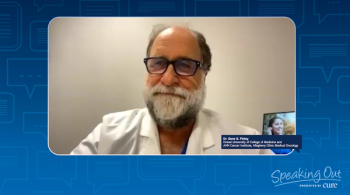
As part of its Speaking Out® video series, CURE® spoke Dr. Gene G. Finley of Drexel University of College of Medicine and AHN Cancer Institute, Allegheny Clinic Medical Oncology, about education disparities among patients with lung cancer.

As part of its Speaking Out® video series, CURE® spoke Dr. Gene G. Finley of Drexel University of College of Medicine and AHN Cancer Institute, Allegheny Clinic Medical Oncology, about education disparities among patients with lung cancer.
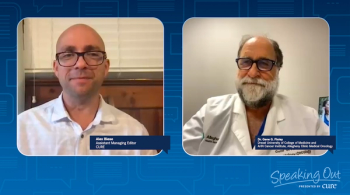
As part of its Speaking Out® video series, CURE® spoke Dr. Gene G. Finley of Drexel University of College of Medicine and AHN Cancer Institute, Allegheny Clinic Medical Oncology, about advancements in treating non-small cell lung cancer and the unmet needs that persist for patients.
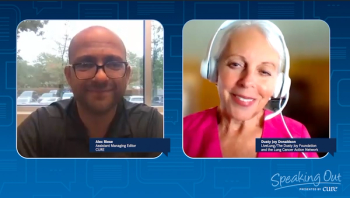
As part of its Speaking Out® video series, CURE® spoke with Dusty Joy Donaldson of LiveLung/The Dusty Joy Foundation and Lung Cancer Action Network about her lung cancer journey and the importance of scans.
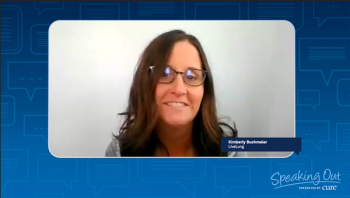
As part of its Speaking Out® video series, CURE® spoke with Kimberly Buchmeier, a lung cancer survivor and board member of LiveLung.
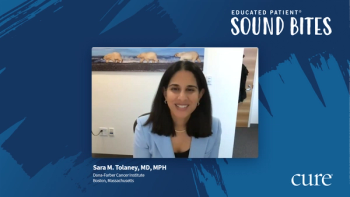
Clinical trials should be considered at any point in a patient's journey with HER2-positive metastatic breast cancer, not just when standard options are exhausted, as they provide early access to promising therapies, novel combinations, and cutting-edge care.

Sara M. Tolaney, MD, MPH explains that treatment decisions for metastatic breast cancer are based on the current biopsy showing receptor status, but prior biopsies over the full course of disease are considered as well, particularly for HER2 targeted therapies which may work even if HER2 low expression occurred years earlier.
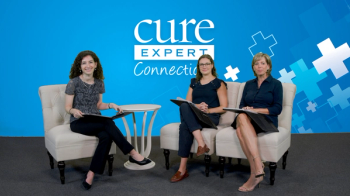
The panel discusses unmet needs in the treatment landscape for patients with cervical cancer and the importance of clinical trials.

Comprehensive insights on the journey of a patient with cervical cancer and treatment options upon progression, with a focus on tisotumab vedotin.
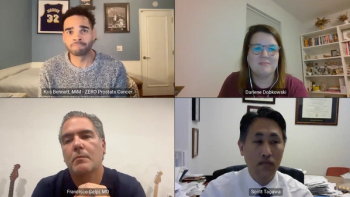
In conjunction with ZERO — The End of Prostate Cancer, CURE® recently hosted the “Educated Patient® Webinar: Advancing Equity in Prostate Cancer Care.��”

Sara M. Tolaney, MD, MPH, states that all breast cancers should be tested for estrogen, progesterone, and HER2 receptors; HER2 testing involves an immunohistochemistry stain to quantify protein levels, with 3+ indicating HER2+ disease, 0 indicating HER2- disease, and 1-2+ levels needing additional FISH testing to clarify HER2 status.

Sara M. Tolaney, MD, MPH, introduces the role of HER2 as a breast cancer cell growth receptor and explains HER2-positive versus HER2-negative.
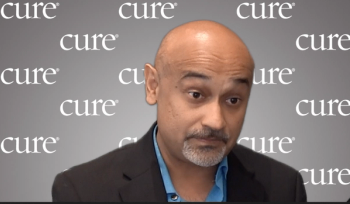
Stereotactic radiation is promising in treating patients with metastatic kidney cancer and may delay the time until patients need further treatment, an expert said.

Expert perspectives on how to best match the right treatment with the right patient with cervical cancer.

Clinical insights on treatment options for patients with newly diagnosed metastatic cervical cancer, with a focus on immunotherapy and the KEYNOTE-826 trial.
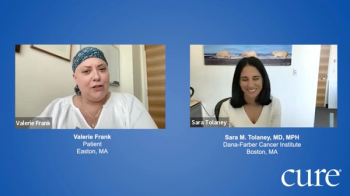
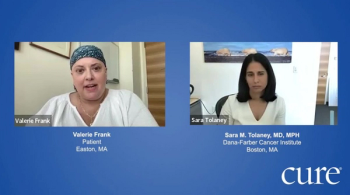

Experts on cervical cancer discuss treatment options for patients with primary or recurrent cervical cancer and review the GOG 240 study.

The expert panel discusses ways doctors can make cervical cancer screening easier in terms of access and the patient experience.
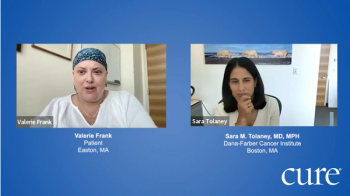
Valerie Frank and Sara M. Tolaney, MD, MPH, share advice for patients on managing treatment with antibody-drug conjugates and the importance of participating in clinical trials for HR+/HER2- metastatic breast cancer.
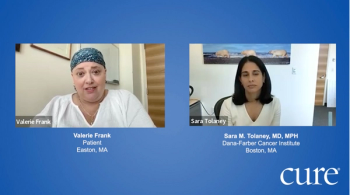
Valerie Frank and Sara M. Tolaney, MD, MPH, share advice for patients on managing treatment with antibody-drug conjugates and the importance of participating in clinical trials for HR+/HER2- metastatic breast cancer.
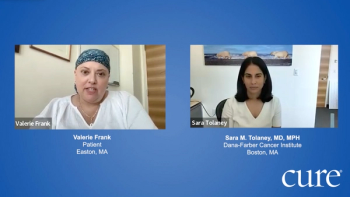
Valerie Frank and Sara M. Tolaney, MD, MPH, share advice for patients on managing treatment with antibody-drug conjugates and the importance of participating in clinical trials for HR+/HER2- metastatic breast cancer.
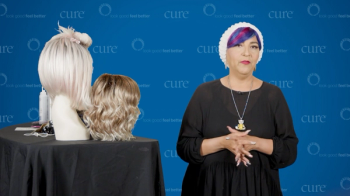
In this on-demand webinar series, CURE partnered with Look Good Feel Better to offer fun wig options for patients to wear after hair loss from cancer treatment.
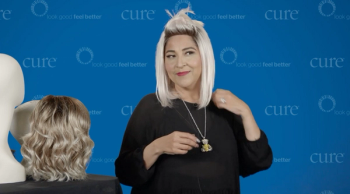
In this on-demand webinar series, CURE partnered with Look Good Feel Better to discuss how patients with cancer can care for their wig.
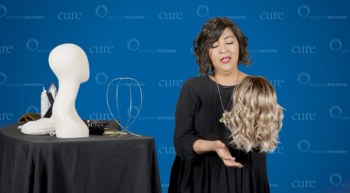
In this on-demand webinar series, CURE partnered with Look Good Feel Better to show how patients who experienced hair loss from cancer treatment can style their wigs.
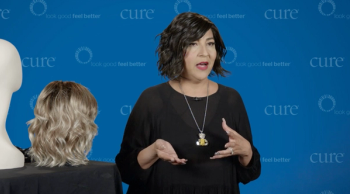
In this on-demand webinar series, CURE partnered with Look Good Feel Better to demonstrate how to put on and adjust a wig for comfort and appearance for patients with cancer who have experienced hair loss from treatment.
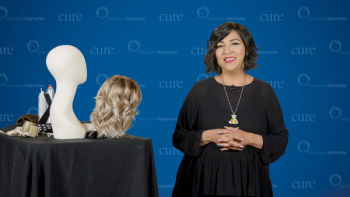
In this on-demand webinar series, CURE partnered with Look Good Feel Better to offer patients with cancer offered tips for haircare and hair loss before, during and after treatment.

Linda Ryan, a patient advocate, details her treatment journey with cervical cancer and discusses resources available to patients.

After introducing the panel, Claire Friedman, MD, provides a brief overview of the screening process, prognosis, and treatment of cervical cancer.
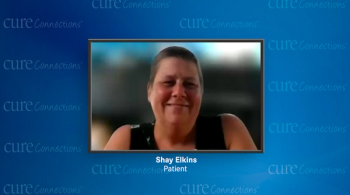
Dr. Noor Abuhadra and patient Shay Elkins discuss overcoming barriers to cancer treatment access and reimbursement. Shay shares her relatively smooth experience with insurance coverage, while Dr. Abuhadra emphasizes that healthcare teams will fight for patient coverage, especially when treatments are backed by research and FDA approval. Dr. Abuhadra also mentions having a financial clearance department to handle denials and secure approvals, as well as training staff to fill out prior authorization forms. Shay underlines the importance of self-advocacy and leveraging online communities for both emotional support and practical advice.
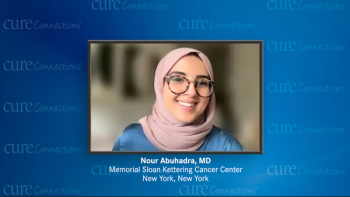
Dr. Noor Abuhadra discusses managing adverse events in patients receiving TRODELVY (sacituzumab govitecan), a later-line systemic therapy for metastatic triple-negative breast cancer. Shay Elkins, a patient, shares her experience with significant side effects including diarrhea, low white blood cell counts, and hair loss, while Dr. Abuhadra emphasizes the need for proactive management of these issues to maximize treatment time and maintain quality of life.